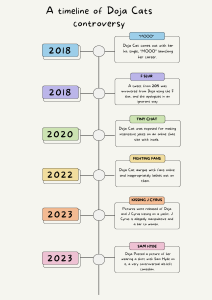6 Studying tips to help you ace your midterm
Student reads a book. Reading material for your course as well as for enjoyment can help you balance studying and relaxation during your stressful week.
December 8, 2022
With the end of the year fast approaching, it is once again time for us to start thinking about midterms. I personally have the worst habits when it comes to studying and reviewing for those dreaded tests. But, this year I am determined to not be the procrastinator that I am, and actually study in an effective way. To do this, I have been researching and have found many helpful tips and tricks that hopefully will benefit not just me, but will also help you to succeed on your exams.
1. Plan ahead
Midterms are a marathon, not a sprint. You will be taking your tests over multiple days, and your studying should reflect that. Start studying several days before, and decide which subjects you need to spend the most time on. Look at which exams are which days, and which subjects or topics you need the most review on. If you aren’t sure what you need to study, try doing a general review, then circling back to topics you missed the most questions on. Make sure you also plan to study different types of questions (multiple choice, short answer, essay, etc).
2. Make a space for yourself
Studying is all about the vibes, and it is up to you to set them. Decide on a place, whether it be your desk, dining room table, or bed, and stick to it. Make sure the room is at a comfortable temperature (colder is usually better) and the lighting is bright but not too bright. Put on some music (with no words if that will distract you), and have all your necessary materials easily accessible. If studying with other people will keep you accountable, form a group. If not, then make the best decision for yourself and limit the amount of people you come into contact with while you’re studying.
3. Don’t just memorize the information
This may sound counterintuitive, but trust me on this one. The way you will succeed best is not by just memorizing the definitions given to you. In a high pressure situation, the second your nerves act up all of that will just fly out of your head. Instead, learn the themes and ideas of the information and apply it to the questions you receive during the exam. This can be rewording topics and definitions, remembering specific rules for math questions, or applying certain laws in science classes. This will help you when presented with trick questions, as well as bonuses that may not have been covered in any review materials.
4. Take breaks
When planning your study session, make sure you also account for breaks. By pausing your studying, it will actually help you retain information better. Not only will it give your brain time to process, but it will also give you a fresh mindset when you do return. Try setting yourself up on an hour-long cycle- 50 minutes of studying, 10 minutes of break. When I say take a break, that DOES NOT mean get on your phone and scroll on tiktok for an hour. Believe me, I’ve been there. But, your brain is still processing information, and therefore doesn’t view this as a break. Instead, get up and go do some stretches or take a walk. Or, if physical activity isn’t your jam, go make a snack or take a quick nap. Just make sure you set a timer so you don’t stay away too long.
5. Figure out your learning style
I know we’ve all had those teachers who have made us take those tests to figure out your learning style. But, they honestly do have a point (shocking, I know). By understanding your learning style you can plan out your studying in a way that will be beneficial to you. As a kinesthetic learner, sitting down and studying notes will not work as well for you. There are plenty of different ways to learn, and if you know what works for you, you optimize your chances of succeeding.
If you don’t know what learning style you have, this quiz is pretty accurate in my opinion:
https://arden.ac.uk/what-type-learner-are-you
6. Take care of yourself
I get it, exams are tough. They are one of the things people hate most about school. But, it is important to keep in mind- these are simply test scores, and you are way more than that. Yes, it is important to do well, but not to the point where you are no longer taking care of yourself. Make sure you are getting plenty of rest and exercise, as well as drinking lots of water. When you start studying early, then you can still spend time with friends and family, and do things that you enjoy. We’ve all heard that you should get a good night’s rest and eat a healthy breakfast on the day of your exams, but taking care of yourself leading up to the test is just as (if not more) important.
Conclusion
So with these tips in mind, I hope a little bit of stress can be taken off your shoulders. By doing these six simple things, you are setting yourself up for a successful testing season. So go out there, try your best, and remember- it’s almost winter break!









